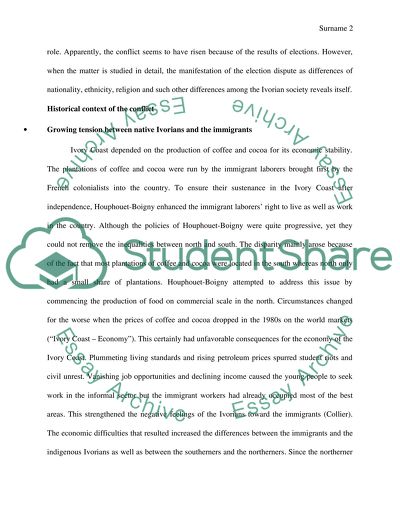Cite this document
(“Conflict in Ivory Coast of 2011 Essay Example | Topics and Well Written Essays - 3000 words”, n.d.)
Retrieved from https://studentshare.org/history/1485349-2011-conflict-in-ivory-coast
Retrieved from https://studentshare.org/history/1485349-2011-conflict-in-ivory-coast
(Conflict in Ivory Coast of 2011 Essay Example | Topics and Well Written Essays - 3000 Words)
https://studentshare.org/history/1485349-2011-conflict-in-ivory-coast.
https://studentshare.org/history/1485349-2011-conflict-in-ivory-coast.
“Conflict in Ivory Coast of 2011 Essay Example | Topics and Well Written Essays - 3000 Words”, n.d. https://studentshare.org/history/1485349-2011-conflict-in-ivory-coast.


